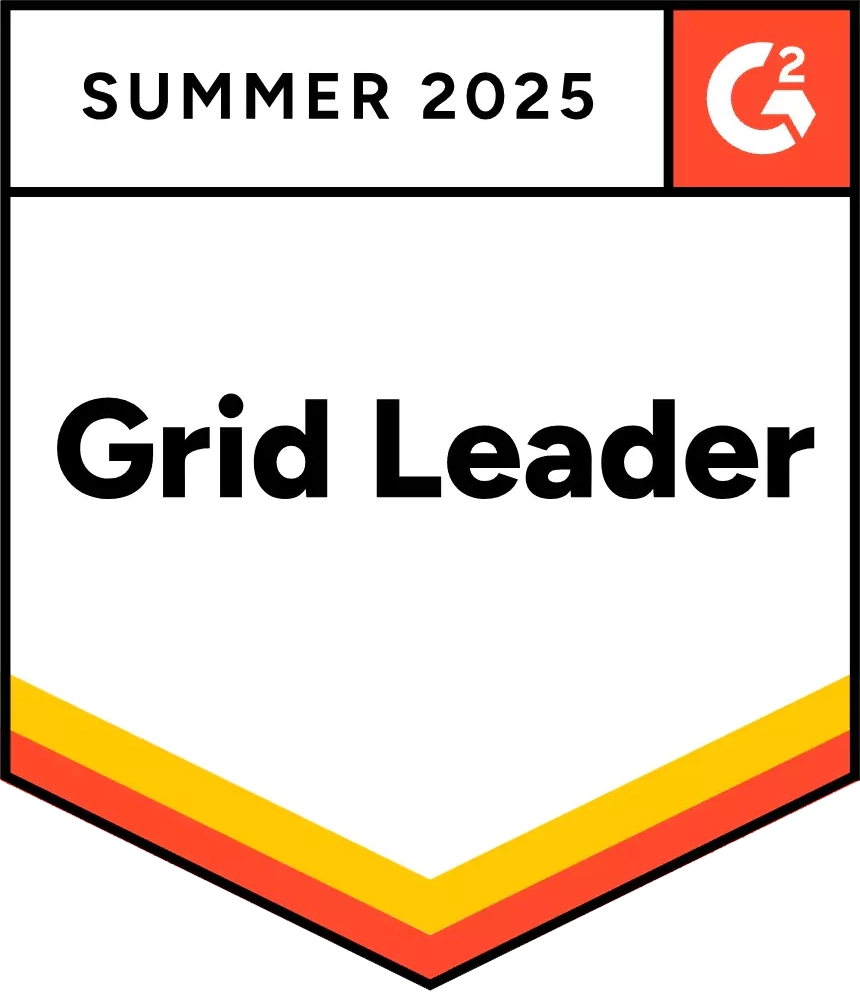What’s new?
The EZO team is excited to announce the new and enhanced interface for our integration with Zendesk. Designed to improve agent’s productivity, the new UI offers streamlined functionality for better, faster ticket resolution. Learn more.
Use EZO’s Zendesk app to manage tickets and incidents regarding all your equipment.
1. Why integrate with Zendesk?
Imagine being able to get all the information you need to resolve a service ticket without even having to switch browser windows! At the same time, you can also track all tickets and ticket creators linked to a specific item from the Item Details page itself.
Integrating EZO with Zendesk can enable teams to quickly identify what needs to be worked on, what issues have previously been associated with an item and other details such as Location and AINs.
Integrate EZO With Zendesk and Improve Your Service Desk Workflows
This helps iron out operational workflows, too. Teams can clock equipment details or check-out replacement items to requesters a lot quicker, and the requesters can, in turn, keep tabs on the status of their tickets directly from EZO!
Zendesk integration also generates more contextualized information about assets. Think of it as the bridge between long-term asset lifecycle management and the day-to-day issues relating to them. Better information is great for business. For instance, it can reinforce user accountability by making a Requester’s ticketing history so much more accessible.
Creating linkages such as this, therefore, has many benefits. It can cut down on repair times, promote efficiency, and improve the accuracy of information members have access to.
Setting up the integration is simple. Here is a short video to help you get started.
2. Some common workflows
Some typical uses of Zendesk EZO Integration are:
- An employee filing a ticket regarding their broken computer that needs to be fixed. EZO tracking asset related details while Zendesk tracking the ticket workflow.
- A person in the field requiring help on using a drill machine, and an agent in Zendesk following up, with specific details about the assigned machine.
- A customer requesting memory extension for their Macbook. The IT Helpdesk looking up details on the Macbook checked out and based on the model determining the type of upgrade required. The details and past work on the MacBook being visible through the Zendesk app for EZO.
- Agents looking up details of any asset in the organization via EZO for outstanding Zendesk tickets. Users creating Zendesk tickets from EZO.
- Logging EZO services and maintenance events in Zendesk to be assigned to the maintenance team.
Click here to watch the full video series on EZO x Zendesk workflows.
3. Installation guide
The installation works both ways, that is if you install EZO from Zendesk or vice versa. However, we recommend installing Zendesk from your EZO account, as this eliminates the risk of human error.
3.1. Installing Zendesk from EZO
You need both Zendesk and EZO accounts for this. Sign into both of these, and then:
1) In EZO, go to Settings → Add Ons → Zendesk Integration and tap the ‘Get the app at Zendesk’ button.

2) Provide your Zendesk subdomain.


3) Once you’ve entered the subdomain here, press the Connect button. We’ll take care of the rest.
3.2. Installing EZO from Zendesk
There are two cases where you would install EZO from Zendesk:
- You want to install the EZO app from the Zendesk marketplace, and then connect the two accounts.
- You connected the two accounts from EZO and then uninstalled EZO from Zendesk. This means that Zendesk is still connected from the EZO end, but the EZO app needs to be re-installed from the Zendesk end.
In both cases, you will be asked for the following information in order to install the app:
- Access Token: You can get this by going into your EZO account, and then to Settings → Add Ons → API Integration to generate a new token.
- EZO Subdomain: Add your full EZOffficeInventory subdomain and host, such as ‘business.ezofficeinventory.com’.
- Owner’s Email Address: You would provide the email address of the EZO account owner.
In essence, this is the screen you will see if you try installing the app:

Important Notes:
- For the integration to work, your role on Zendesk must be set as an ‘Admin’. Similarly, Zendesk can only be disconnected from EZO by the user that first integrated the two systems together. This user will have to be an admin on Zendesk at the time of disconnecting.
- Enable the Auto-sync when configuring the two apps. This ensures that whenever a ticket gets resolved in Zendesk, it is automatically updated in EZO as well.
- The user with the same email as the agent user in your Zendesk account must be present in your EZO app as an Administrator.
4. How does the integration work?
4.1. The Basics
Open any Zendesk ticket and look for the EZO app on the right. If the Apps Pane is collapsed, tap the Apps button on the top right to view connected apps. With every ticket, you will see:
– A link to that person’s EZO profile
– Overall details of checkouts and reservations
– Item details

All of the Requester’s Checked Out items will populate under the relevant section heading on the right. Based on the description in the ticket, the support agent can scroll through the list and link the relevant items to it.

You can also link other items (that is, items not assigned to the Requester), by scrolling to the bottom of the list and clicking on “Search for All Items in the Company’. You will then be brought to a search bar, where you can look up assets and asset stock and link them to the ticket just like you did previously:

Here you can search assets and asset stock and apply various filters by Item Type, State, Group, location, and Custodian. To make workflows simpler, you can quickly search for Available Items by clicking on the filter ‘Available Items’ on the right.

When searching for an item, you can also filter for Assets, Asset Stock or Both.

All items on this right-side pane are clickable. Clicking on item name in Zendesk will open a tab in EZO – the item’s detail page.

All linked assets/asset stock can be viewed just under the Requester’s profile:

You can see the ticket reference in EZO. For example, here’s what a Item Details Page looks like for a Macbook if it’s been linked to a ticket in Zendesk.

The Zendesk Tab has all the necessary details pertaining to the linked Zendesk tickets, including information on Ticket #, Summary, Requester, Created On, Status and Assignee Agent.
Update: You can now coordinate maintenance events across departments from a centralized location. For example, some of the VR headgear gets damaged at a CES exhibition. The booth operators create a service ticket in EZO for a repair/replacement. A ticket automatically gets created in the company’s Zendesk account operated by the IT department, which is immediately notified and takes reparative actions. You can also send multiple items for servicing via mass action and create a ticket in Zendesk via EZO.
Read more: Implement Efficient Workflows by Enabling User Actions in Zendesk
4.2. Choosing attributes to display in Zendesk
From your EZO account, go to Settings → Add Ons → Integrate Zendesk → Item Attributes.
Here, click on ‘Configure Attributes’.

This feature allows you to display numerous attributes of your choice on Zendesk. Use the dropdown menus to make your selections. Now, head to your Zendesk account and add an item to a ticket. The attributes displayed for all assets will be the ones configured via your EZO account.

4.3. Choosing item tags to display in Zendesk
Item tags in Zendesk will be defined based on the settings in your EZO account, with the pathway: Settings → Company Settings → Advanced Settings → AIN Options.
The enabled option here will be the mode of identification for assets tagged with a ticket. Choose between the Item Number and the Asset Identification Number and save the change. You can now head to your Zendesk account and link an item to a ticket.
Tag: EZO Item Number

Tag: Asset Identification Number

4.4. Zendesk Activity Logs
You can view records of every action users perform on a ticket, such as linking items, creating a purchase order, or checking out items. The activity log is added to the ticket as internal notes after any activity is performed. It provides the user name, email, and activity details performed by the user.
Here’s how you can enable activity logs in Zendesk:
- When you log in to your Zendesk account, go to Settings and then click ‘Go to Admin Center’

- You will be redirected to the Admin Center page. Click on ‘Apps and Integrations’ from the sidebar and then select ‘Zendesk Support apps’ from the dropdown. Click on EZO to view settings.
- On the EZO settings page, scroll down to check ‘Activity Logs’ settings and click Update.

- Now let’s go over an example of an activity log internal note added to a ticket. John has checked in a laptop from Tony in the ‘Broke my Macbook’ ticket shown below. As soon as the laptop is checked in, an activity log internal note is added.

4.5. Creating Zendesk service ticket from EZO mobile app
While checking in an asset for service, users can also create a service ticket in Zendesk directly from the mobile application.

4.5. Filter Assets by Zendesk Tickets

After you have enabled the Zendesk integration on your EZO Account, you will be able to filter out Asset and Asset Stock by Zendesk ticket status. Go to the Asset Listings Page → Filter→ With Zendesk Tickets.
This will pop up an overlay asking you to choose the status of the Zendesk Ticket. Once you select a status you will be able to view all Assets with the relevant Zendesk ticket.

Read more: Configure Zendesk Service Desk Alerts in EZO
5. Troubleshooting
1. Getting the error message when integrating with Zendesk, ‘The Requester <your email> doesn’t exist under Members in EZO …’
Solution: The requester must exist in EZO and Zendesk with the same email address.
2. Zendesk users not being recognized in EZO
Solution: For EZO to recognize users of your Zendesk account, you need to add them (by matching their email addresses in both systems). We currently do not support auto-importing users from Zendesk to EZO, but if you’re interested in having us implement this, please let us know by reaching out to us.
3. Getting the error message in Zendesk “There was a problem accessing the data ….”
Solution: This can happens for two reasons:
- While installing the EZO app from Zendesk, you’ve provided an invalid Access Token or EZO subdomain. To troubleshoot, configure your app settings again from Zendesk or simply disconnect Zendesk from Settings –> Add Ons and then reconnect.
- When the subdomain for the account is changed in EZO or a custom domain is added. To fix, simply disconnect Zendesk from Settings –> Add Ons and then reconnect.
Note: Existing data will NOT be impacted by the resetting of the connection.
4. Zendesk stops syncing with EZO
Solution: This happens when the account owner that originally set up the integration from EZO has either had a change in member role or has had their email address updated in Zendesk. To reconnect, simply go to Settings –> Add Ons and integrate with Zendesk from the current owner’s account.
Note: Prior data is not impacted during resetting of the connection.
5. Getting the alert message while disconnecting Zendesk from EZO: “Zendesk Add On has been disabled but we were unable to uninstall the EZO App from your Zendesk account…”.
Solution: While you might’ve disconnected Zendesk from EZO, the EZO App might not uninstall from Zendesk. These are the possible reasons:
- Your Zendesk trial account has suspended;
- The Admin’s email address has been updated in Zendesk;
- The role of Admin has been changed to that of a Staff User in Zendesk OR;
- The Admin has revoked EZO’s authorization from the connected Zendesk account.
To fix, head to your Zendesk Account and uninstall the EZO App manually. Go to Settings –> Apps –> Manage to uninstall the App.
6. EZO application not showing up in the Zendesk workspace after enabling the integration
Solution: If you are on the Starter or Essential plan of Zendesk and try to enable the Zendesk integration for EZO, the EZO application will not get populated in the Zendesk workspace.
You must be on the Suite Team or a higher Zendesk plan for the EZO application to be visible in the Zendesk worksapce.
7. Getting an error for broken Zendesk Integration and how to fix it?
The integration can be broken due to two reasons:
1. API Token of EZO is refreshed by the Admin
2. Zendesk OAuth token is revoked from Zendesk
In the first case, the user has to open the Zendesk app and update the new API token generated in EZO.
In the second case, the user has to re-integrate.
Share your feedback with us!
If you have any comments or questions regarding Zendesk EZOIntegration, drop us an email at support@ezo.io.








